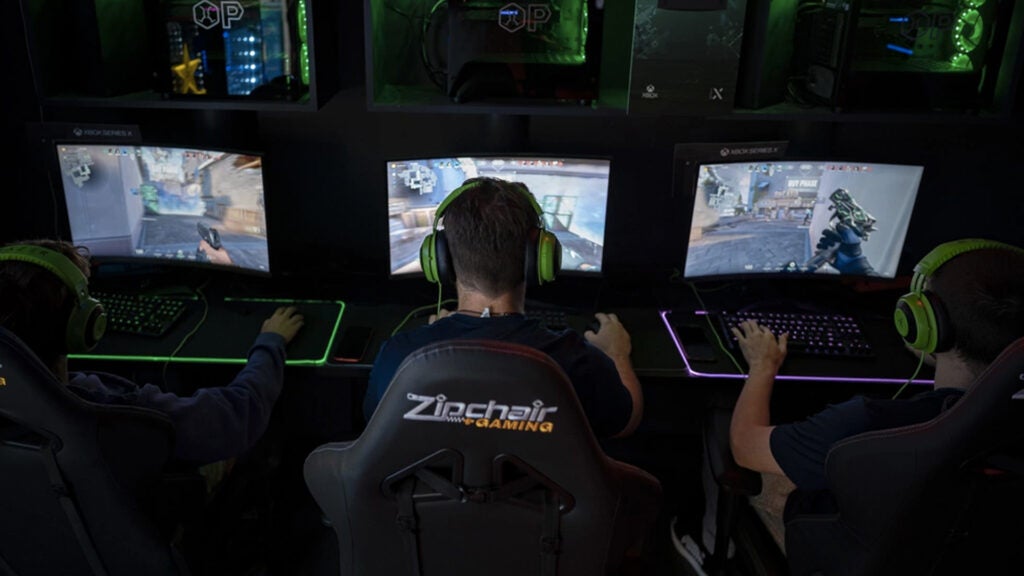Next time your first sergeant tells you to stop no-scoping newbs in “Warzone,” you tell him or her that it’s actually making you a better Marine, the science proves it. Just kidding, listen to your first sergeant, but fans of first-person shooters can take comfort in knowing that the game actually makes you a faster learner where cognitive control and visual awareness are required.
“Anyone who is in a position where they would benefit from greater than normal cognitive control, top-down attention, peripheral visual processing would benefit from playing action games, which are primarily first- and third-person shooter games,” said Dr. C. Shawn Green, a psychology professor at the University of Wisconsin-Madison whose work studying the effect of video games on cognitive performance was supported by the Office of Naval Research.
“That’s obviously a huge set of individuals, from those involved in combat, to people like surgeons or pilots,” Green said in a recent Navy press release.
The Office of Naval Research wants to know more about this research so it can design training for Marines and sailors that will make them faster at processing information, explained Dr. Ray Perez, program officer at the office’s Warfighter Performance Department.
“Ten hours of video games can change the structure and organization of a person’s brain,” Perez said. “In the past few years we have gathered data through research that backs that up. The data will eventually be applied for training to enhance warfighter performance.”

There has been plenty of research supporting that video games produce “enhancements in a wide range of cognitive abilities,” Green and seven other scientists wrote in their research paper in October. But in this study, they focused specifically on action games and whether playing them helps people learn new tasks faster.
Turns out, it does. Participants who played the shooter games “Call of Duty: Black Ops 1,” “Call of Duty: Black Ops 2,” and “Half-Life 2” improved faster at tasks involving visual perception and working memory compared to participants who played slower-paced games such as “Sims 3,” “Zoo Tycoon” and “Viva Piñata,” where players breed piñata animals on Piñata Island. That’s a far cry from “Call of Duty” where, in the words of Honest Trailers, you have to play like “a shotgun-toting rabbit hopped up on meth” to survive.
“They had a slight advantage right away, after playing the action games,” Green said in a University of Wisconsin press release. “But the bigger effect was that they improved faster at these orientation and memory tasks than the people who played other games.”
The visual perception tasks involved quickly picking out the direction of movement of an object, or the orientation of shapes running across a shape, the press release explained. The working memory tests, meanwhile, asked players to listen and watch for shapes and letters and report when they matched past shapes and letters and how they were placed on the screen.
All 77 study participants performed those tasks before splitting into roughly equal groups to play either action video games or slower games for 45 hours over the course of at least six weeks. Afterwards they did the perception and memory tasks again and the results were intriguing.
“Consistent with our hypotheses, we found that those individuals trained on the action game showed faster learning of new tasks compared to those on control video games,” Green told the Office of Naval Research.

You may be wondering what matching shapes and letters have to do with being a sailor or Marine, but the skills it takes to do that overlap with those required to do many fast-paced or sensory-overloading jobs in those services such as surgeons, pilots or “those involved in combat,” Green said.
“Constantly having to manage new stuff versus old stuff as information comes in” must be often when learning a new task, Green said, and it is also a skill promoted by action games.
Developing those cognitive skills is similar to developing an athlete, the scientist explained. An athlete who has never played rugby before will likely pick it up faster than someone who is not an athlete simply because they are in better physical shape than the non-athlete.
“Their increased athleticism will mean that they’ll tend to be in slightly better positions initially than people with lesser athleticism, and thus will learn to play rugby more quickly,” Green said.
Now the challenge for the Office of Naval Research is to take Green’s findings and turn them into engaging, helpful training for sailors and Marines. Though both services have used simulators, virtual reality and video games in training for years, there is always room for improvement.
“The research will aid in developing more effective training methods granting Sailors and Marines a strategic advantage in the battles to come,” the office wrote in its press release.
They have a lot of catching up to do. Last we checked, it was not the Navy or the Marines who won an international military “Call of Duty” tournament. It was the Space Force.
What’s hot on Task & Purpose
Want to write for Task & Purpose? Click here. Or check out the latest stories on our homepage.
